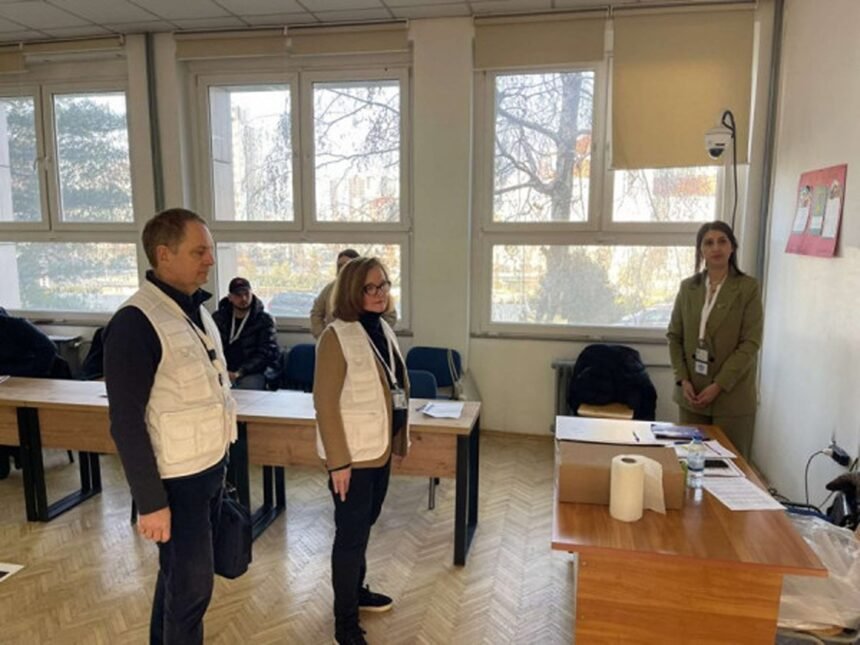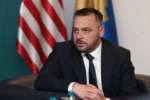The European Union (EU) has emphasized that the early parliamentary elections in Kosovo on December 28 should be well-administered and competitive, including the participation and certification of political parties and the accreditation of media from all communities.
The EU told KosovaPress that the decision on sending an election observation mission will be confirmed once a formal decision is made, as the election announcement by Kosovo authorities was issued only recently.
Meanwhile, electoral process monitors have raised concerns that holding elections on December 28, during the holiday season, could pose challenges for internal administration and international monitoring. However, holding the elections on this date is considered necessary, due to the legal impossibility of holding them later after the dissolution of the Assembly, as well as technical limitations of the Central Election Commission (CEC) to hold them earlier.
The elections were scheduled by President Vjosa Osmani on November 20, after she dissolved the ninth legislature, which had been non-functional for eight months, failing twice to elect a new government following the February 9 parliamentary elections.
Vetëvendosje (VV) attempted twice to form a government, first nominating party leader Albin Kurti and then deputy chairman Glauk Konjufca, but both received only 56 votes in the Assembly from the 61 required.
The EU Office in Kosovo expressed regret that political parties failed to overcome the prolonged deadlock.
“We take note of the announcement of the early parliamentary elections on December 28, 2025. The EU emphasizes the importance of a well-administered and competitive electoral process, including participation, party certification, and media accreditation from all communities… Regarding the election observation mission, since the announcement was made only recently, we will confirm it once a decision is taken,” the EU statement said.
The EU also stated it is ready to cooperate with Kosovo authorities once elected and continue supporting Kosovo on its path toward the EU.
“The EU is ready to work with Kosovo authorities once they are formed and continue to support Kosovo on its path toward the EU. We expect Kosovo to return to the proper path for the much-needed reforms related to the EU, for the benefit of its population and to advance in normalizing relations with Serbia,” the EU Office in Kosovo emphasized.
On the other hand, Naim Jakaj, a researcher at the Kosovo Institute for Justice, told KosovaPress that holding elections on December 28 could be problematic in two ways. Internally, it will be a challenge to select commissioners and observers, while externally, international staff will not be present in Kosovo during the holiday period.
“December 28 could be problematic both externally and internally. Externally, international personnel will not be present in Kosovo to monitor the elections as they have in every previous election. Internally, it will also be difficult to select commissioners and observers needed by the CEC for proper administration. Imagine: elections on December 28, and just two days later, New Year’s celebrations. How will ballots be secured? How will CEC commissioners remain attentive while safeguarding these votes? How will vote counting be administered, knowing a large portion of the population will be in a festive atmosphere while others are at work? This cannot constitute well-managed and smooth administration in favor of the electoral process,” Jakaj explained.
Political analyst Dorajet Imeri offered a different view, saying that holding elections on December 28 is imposed by legal and technical constraints: it cannot be held later after the Assembly’s dissolution, and the CEC cannot organize it earlier.
“December 28 is largely imposed due to the impossibility of holding elections later and technical limitations preventing an earlier date. The CEC has previously conducted two other elections and a runoff, making this the third election. Organizing another election within a short period requires mobilization. Legally, the CEC must notify voters abroad, which cannot be done in time. This is the only feasible date within the deadlines and technical possibilities. Political parties should see this date as an opportunity, as the Albanian diaspora will be in Kosovo for the holidays, which could influence the outcome positively,” Imeri stated.
Vetëvendosje, along with its partners Guxo and Alternativa, welcomed the December 28 election date.
Meanwhile, former opposition parties PDK, LDK, AAK, and Nisma requested that elections be held earlier, on December 21.







